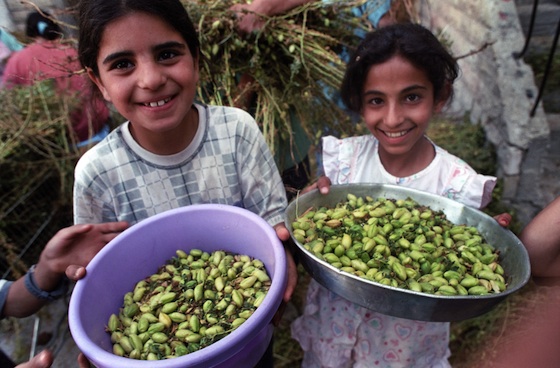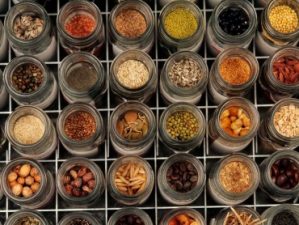 According to the latest findings by global risk-analyser Maplecroft, Arab Spring countries are at greater risk of rising food prices in the coming year
According to the latest findings by global risk-analyser Maplecroft, Arab Spring countries are at greater risk of rising food prices in the coming year
It’s no secret that the high price of basic food staples were a contributing factor to the revolts which began in Tunisia and Egypt and sparked the ‘Arab Spring’. The protesters took to the streets waving bread and asking for equality and an end to corruption. Today, however, it seems little has changed since those protests in terms of the cost of food. According to the latest food price forecasts for 2013 by global risk-analyser Maplecroft, food prices are actually likely to rise again in the region. What’s more: countries involved in the protests around the Arab world are particularly at risk of rising food price shocks.
“The drivers of the ‘Arab Awakening’ were varied and complex and included long standing public anger at high levels of governmental corruption and oppressive tactics against populations and political opposition,” states Maplecroft CEO Alyson Warhurst. “When these factors combine with food insecurity, sparked by rising global prices, it can create an environment for social unrest and regime change.”
Back in 2007/8, a global food crisis resulted in several food riots across the region including places such as Yemen and Egypt. This year, the tenuous nature of global food security was back on the agenda due to the USA’s worst drought in 50 years and a 10% drop in production across countries from the former Soviet Union. These low crop yields have lead to to a global food price rise of 6% in July 2012. A report by Rabobank, a financial specialist in agro-commodities, estimates that price of food staples could rise by as much as 15% by June 2013, resulting in record high food prices.
“Food price forecasts for 2013 provide a worrying picture,” states Maplecroft’s Head of Maps and Indices Helen Hodge. “Although a food crisis has not emerged yet, there is potential for food related upheaval across the most vulnerable regions, including sub-Saharan Africa.” In the Middle East and North Africa region, the countries at greatest risk include Yemen, Syria and Libya (who along with Iraq are classified as ‘high risk’). Those defined as at ‘medium risk’ of food price hikes include Egypt and Tunisia.
Maplecroft explains that the region remains at elevated risk of food price fluctuations due to its heavy reliance on US and Russians crops. Whilst they are so dependent on cereal imports they wil remain vulnerable to market prices.
The Food Security Risk Index has been developed for governments, NGOs and business to help identify those countries which may be susceptible to famine and societal unrest stemming from food price fluctuations. Maplecroft reaches its results by evaluating the availability, access and stability of food supplies in 197 countries, as well as the nutritional and health status of populations, the organization states.
For more on food prices across MENA see:
Rising Food Prices Behind Riots in Algeria and Tunisia
Arab Protests Affect World Food Prices
How Climate Change Contributed to the Syrian Uprising
Image Arab girls harvesting in Bethlehem via Ryan Rodrick Beiler / Shutterstock.com



